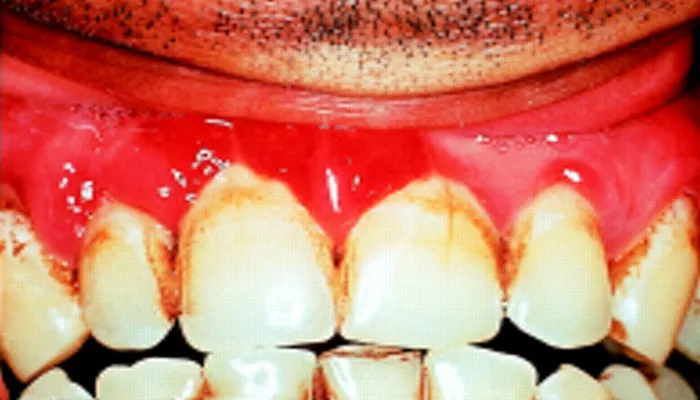Periodontal disease, often referred to as gum disease, is a chronic bacterial infection that affects the tissues surrounding and supporting the teeth. It is a prevalent oral health issue that can lead to significant damage if left untreated. The disease progresses from mild gingivitis, characterized by inflammation and bleeding of the gums, to severe periodontitis, which involves the destruction of the bones and tissues that support the teeth. This destruction can ultimately lead to tooth loss.
Given the severe consequences of periodontal disease, many patients seek various treatment options, including the use of dentures. However, it is crucial to understand the role of dentures in the context of periodontal disease. This guide aims to provide a detailed, professional perspective on whether dentures can treat periodontal disease, complete with subtitles and presented in an easy-to-understand, popular science style.
Understanding Periodontal Disease
Periodontal disease is caused by the accumulation of plaque, a sticky film of bacteria that forms on the teeth and gums. If plaque is not removed regularly through proper oral hygiene practices, it can harden into tartar, which is more difficult to remove and provides a surface for more bacteria to accumulate. This bacterial buildup leads to inflammation and infection of the gums, which can progress to affect the bones and other supporting structures of the teeth.
The Role of Dentures
Dentures are artificial teeth and gums that can replace missing teeth and restore the function and aesthetics of the smile.
They are commonly used in cases of severe tooth loss due to various reasons, including periodontal disease. However, it is important to clarify that dentures themselves do not treat periodontal disease. Instead, they are a treatment option for the consequences of periodontal disease, specifically tooth loss.
Can Dentures Prevent Further Damage?
While dentures cannot reverse the damage caused by periodontal disease, they can help prevent further damage in some cases. For example, if a patient has lost teeth due to periodontal disease, dentures can restore the chewing function and prevent the remaining teeth from shifting out of position, which can lead to additional oral health issues. Additionally, proper care and maintenance of dentures can help reduce the risk of infection and inflammation in the mouth.
The Importance of Proper Care
Dentures require proper care and maintenance to ensure their longevity and prevent oral health issues. This includes regular cleaning and soaking in a denture cleanser solution to remove plaque and bacteria. It is also important to avoid using abrasive toothpastes or cleaners that can damage the denture material. Additionally, patients should visit their dentist regularly for check-ups and adjustments to ensure that the dentures fit properly and are not causing any discomfort or damage to the surrounding tissues.
Addressing Underlying Issues
While dentures can be a valuable treatment option for tooth loss due to periodontal disease, they do not address the underlying infection and inflammation that caused the tooth loss. Therefore, it is crucial for patients with periodontal disease to seek professional dental treatment to address the root cause of the problem. This may include scaling and root planing to remove plaque and tartar from the teeth and roots, as well as antibiotic therapy to control the infection. In severe cases, surgical procedures such as flap surgery or bone grafting may be necessary to restore the damaged tissues and bones.
Preventive Measures
The best way to manage periodontal disease and prevent tooth loss is through preventive measures. This includes maintaining good oral hygiene practices such as brushing and flossing regularly, using an antiseptic mouthwash, and visiting the dentist for regular check-ups and cleanings. Additionally, quitting smoking and maintaining a healthy diet can also help reduce the risk of developing periodontal disease.
Limitations of Dentures in Treating Periodontal Disease
No Cure for Infection: Dentures cannot eliminate the bacterial infection that causes periodontal disease. The only way to treat the disease is through professional dental cleanings, scaling and root planing, or surgical procedures to remove the plaque and tartar that have accumulated on the teeth and roots.
Potential for Further Damage: If periodontal disease is not treated before dentures are placed, the underlying infection can continue to spread, damaging the bones and tissues that support the teeth. This can lead to further tooth loss and make it difficult for the dentures to fit properly.
Maintenance Issues: Dentures require regular maintenance and cleaning to prevent the accumulation of plaque and tartar.
If not properly cared for, they can become a breeding ground for bacteria, exacerbating the underlying periodontal disease.
Conclusion
In conclusion, dentures cannot treat periodontal disease, but they can be a valuable treatment option for the consequences of the disease, specifically tooth loss. However, it is important for patients with periodontal disease to seek professional dental treatment to address the underlying infection and inflammation. Proper care and maintenance of dentures can help prevent further damage and restore the function and aesthetics of the smile. Preventive measures such as good oral hygiene practices, regular dental check-ups, and a healthy lifestyle can also help reduce the risk of developing periodontal disease and maintain oral health.
Related topics:

